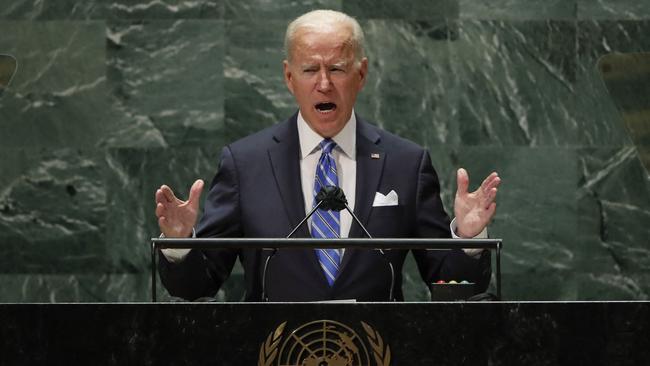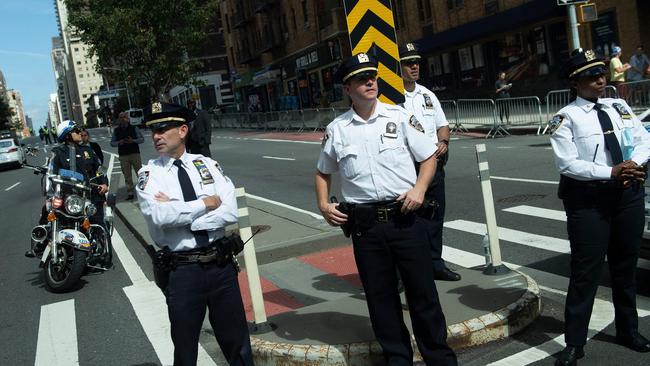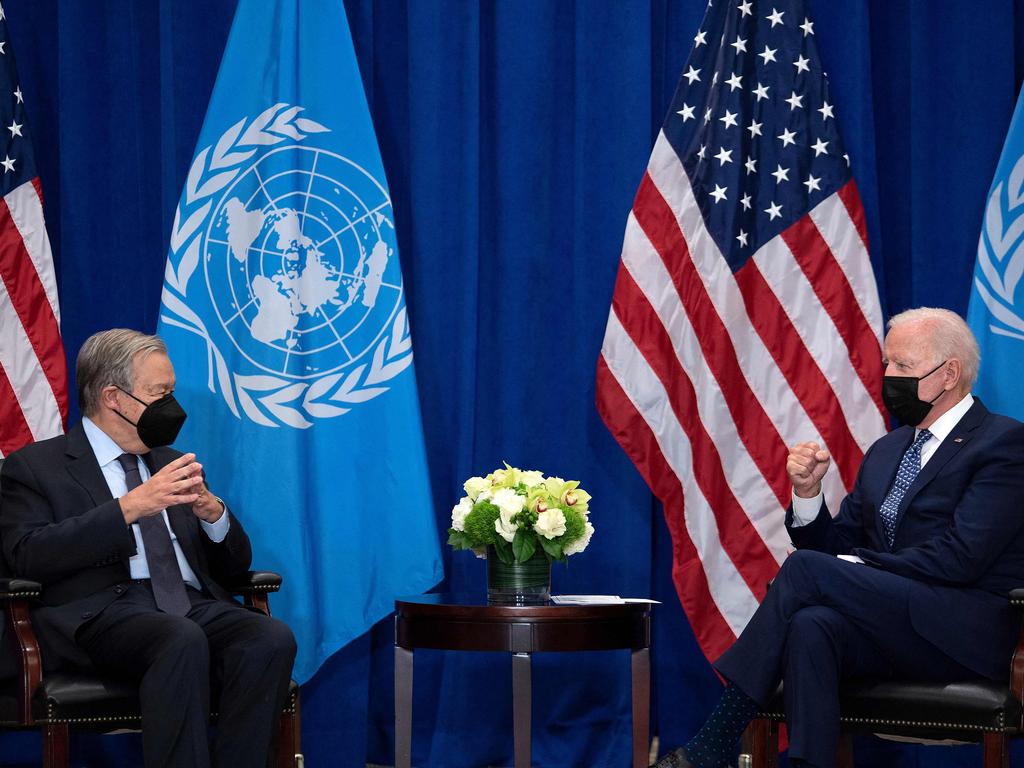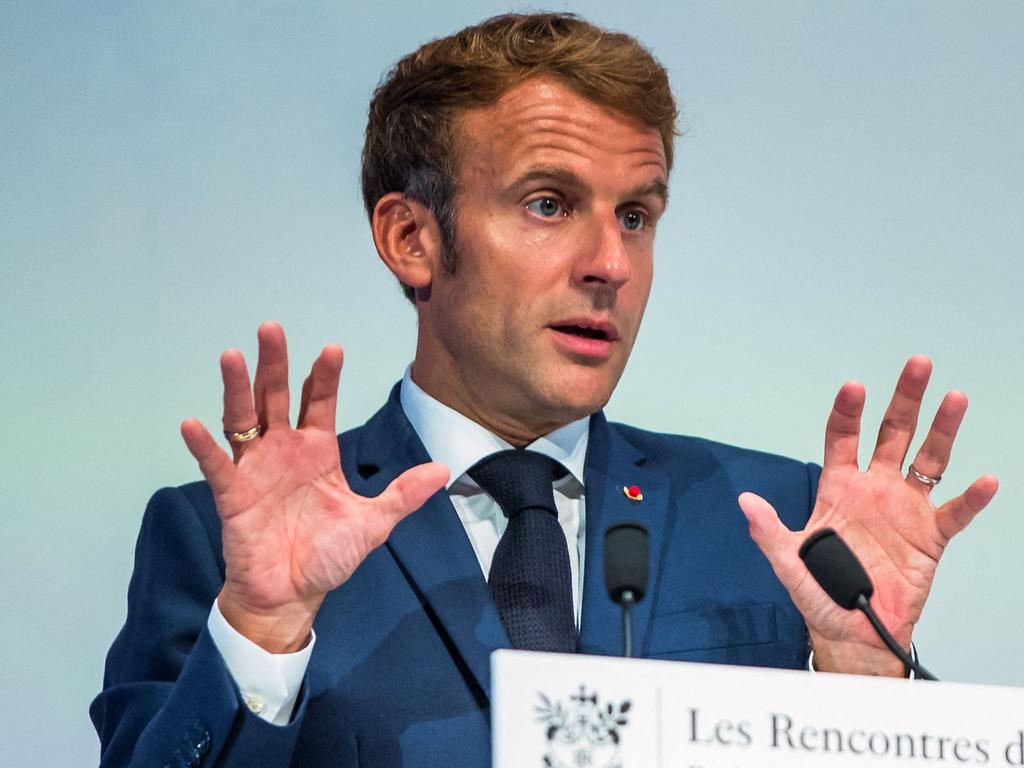Joe Biden urges unity on climate, coronavirus in first UN speech
In his first address to the UN as President, Joe Biden sought to open a new chapter of international relations free from ongoing wars.

President Joe Biden sought to rally world leaders around fighting climate change and Covid-19 in his first address to the United Nations General Assembly as President on Tuesday, seeking to open a new chapter of international relations free from ongoing wars and defuse growing doubts about his leadership.
Mr Biden, in a landmark 35 minute address to the United Nations General Assembly, said the US had put wars in the Middle East behind it along with the “America First” foreign policy of his predecessor, telling assembled delegates the US was “not seeking a new Cold War or a world divided into rigid blocks”
UN Secretary-general António Guterres had earlier in the week said the US and China needed “to avoid at all costs a cold war that would be different from the past one, and probably more dangerous and more difficult to manage”.
“Our security, our prosperity and our very freedoms are interconnected, in my view as never before,” Mr Biden said, following weeks of criticism over his handling of the Afghanistan withdrawal, including failure to consult key allies, and a bungled drone strike that killed 10 innocent Afghans.
“As we close this period of relentless war, we’re opening a new era of relentless diplomacy,” the President said, pointing out he was the first US president in 20 years to address the General Assembly when the US was not at war in another country after the withdrawal from Afghanistan in August.
“All the major powers of the world have a duty, in my view, to carefully manage their relationships so they do not tip from responsible competition to conflict,” he added in a speech that didn’t mention China, increasingly at odds with the US and Australia over trade and security policy, by name.
The President spoke against a backdrop of strained relations with France, the US’s oldest ally, over the signing of a new security pact with Australia and the UK that will see Australia acquire nuclear-powered submarines, terminating a 2016 agreement to purchase diesel submarines from France.
“Today, many of our greatest concerns cannot be solved or even addressed by the force of arms,” he said. “Bombs and bullets cannot defend against Covid-19 or its future variants,” he added, setting the US a task of “beating Covid everywhere”.
“Our shared grief is a poignant reminder that our collective future will hinge on our ability to recognise our common humanity and to act together,” Mr Biden said, referring to the millions of lives lost during the Covid-19 pandemic.
The president also announced a near doubling of US climate aid to developing nations in what was the main tangible announcement of the speech, which would bring the total to around US$11bn by 2024, assuming Congress, mired in negotiations over the Democrats’ signature US$3.5 trillion infrastructure bill, agrees.

“This year has brought widespread death and devastation from the borderless climate crisis,” Biden said.
“We are fast approaching the point of no return in a literal sense,” he added, urging other nations to follow the US in ramping up its commitment to slash carbon dioxide emissions before 2030.
The President, ruling out the acquisition of nuclear weapons by Iran, also revealed the US was prepared to return to a 2015 deal with Iran torn up by Donald Trump. “We’re prepared to return to full compliance with [the deal] if Iran does the same,” Mr Biden said.
He stressed the superiority of democracies over autocracies which has a recurring theme of his speeches since he entered the White House in January.
“No matter how challenging or how complex the problems we’re going to face, government by and for the people is still the best way to deliver for all of our people,” he said,
“The future belongs to those who give their people the ability to breathe free, not those who seek to suffocate their people with an iron hand authoritarianism,” he said. “The authoritarians of the world, they seek to proclaim the end of the age of democracy, but they’re wrong,” he added, in veiled criticism of China.
The President returned to Washington Tuesday afternoon ahead of a virtual Covid summit, where he’s expected to propose a global commitment to vaccinate 70 per cent of the world against Covid-19 within a year, and the first in-person meeting of Quad leaders, which comprises Australia, India and Japan.
Mr Biden was among the first to address the 193-member General Assembly, ahead of Chinese President Xi Jinping, who will speak via a prerecorded video later.








To join the conversation, please log in. Don't have an account? Register
Join the conversation, you are commenting as Logout